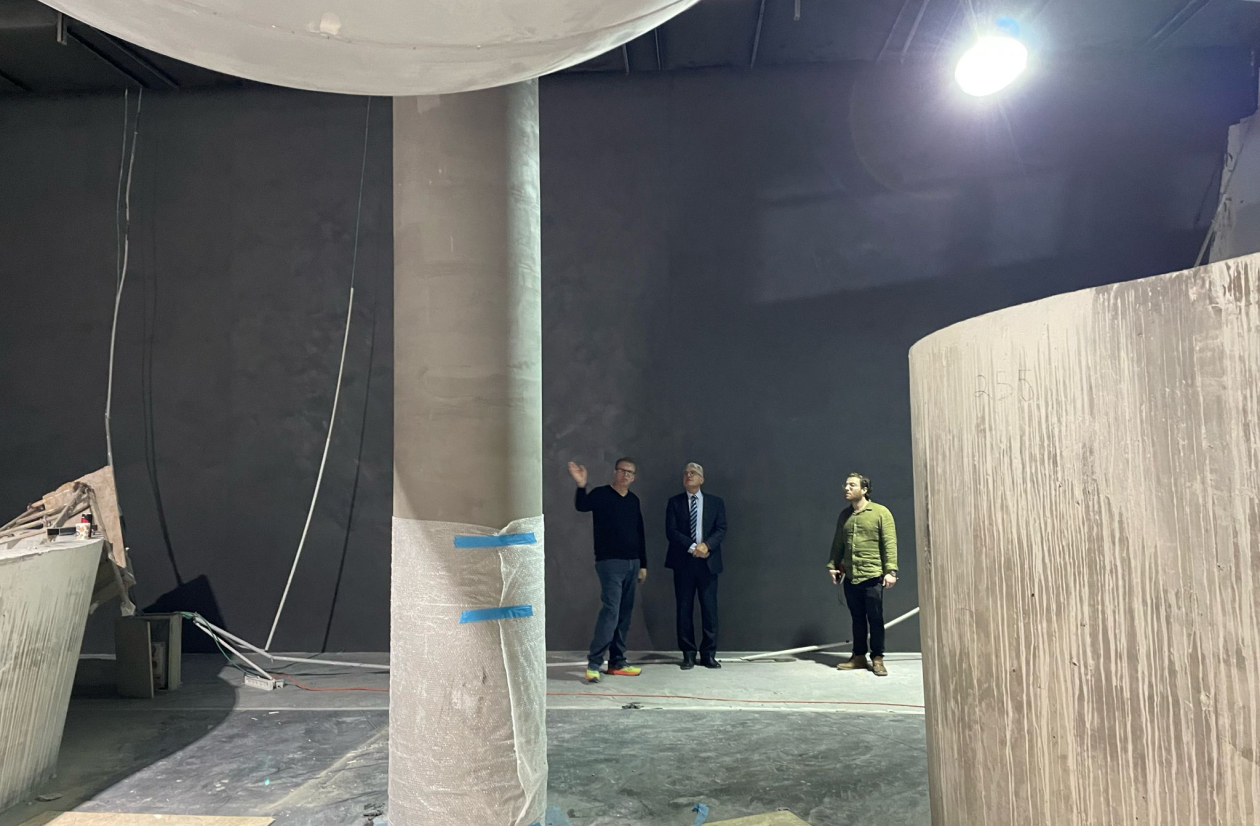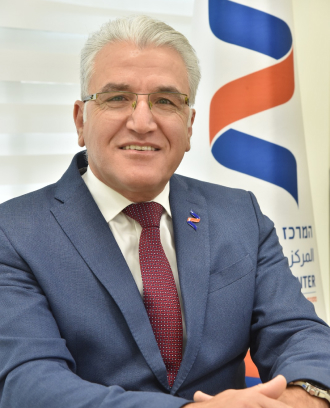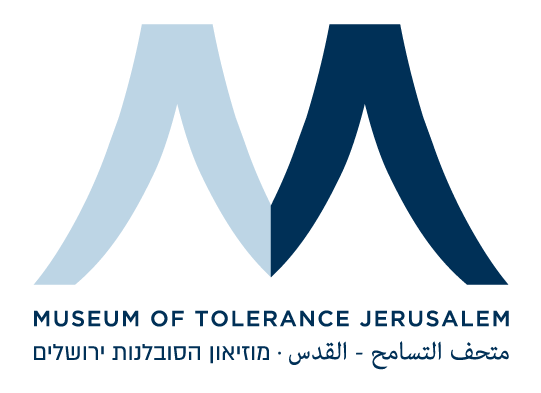Israel’s Druze: Tolerance and integration during war in Israel
Written by TROY O. FRITZHAND, March 2024

Headline | Photo credit: Nissim Cohen
“I wear many hats; a Druze hat, an Israeli hat, a medical hat,” says Prof. Salman S. Zarka, General Director of the Ziv Medical Center in Safed. “But instead of talking about how to separate them, my goal is to combine them.” Israel’s Druze community exemplifies how while tolerance has created a thriving society in the Jewish state, this success is sometimes mirrored by a feeling of inferiority to their fellow countrymen. More than ever, the events of October 7 and the subsequent Swords of Iron War demonstrate the impact the Druze make in Israel and their desire for full integration.
Born to a large Druze family in Peki’in, Prof. Zarka embodies the successful integration of the Druze into Israeli society. The Druze presence in the land of Israel dates back to the religion’s foundation in the 11th century, with a tradition that originates with the Biblical Jethro, the biblical father-in-law of Moses. Today, the community counts roughly 149,000 members as loyal citizens of Israel, approximately 2 percent of the population.
The distinction of the Druze in Israel is clear in military life versus other minority groups – such as Christian and Muslim citizens. Druze are subject to mandatory IDF service like their Jewish counterparts and many Druze have climbed to positions of excellence and prominence within the IDF.

Prof. Salman S. Zarka | Photo credit: Ziv Medical Center
“We are partners in all that happens in the state… I work for my family, for my community, and for the entire state, but I am not a mercenary that fights for the Jewish state,” explained Zarka, an IDF colonel and former head of the Medical Corps of the Northern Command.
“The Druze of Israel have no conflicts with the definition of the Jewish state; the right of return for the Jewish people, the flag of Israel, Jerusalem as the capital, and the tikva.”
Despite this, Zarka says that legislation such as the Nation State law and the Kaminitz Law, which gives authorities sweeping powers to stop or demolish unauthorized construction projects, create a feeling of inequality for the Druze.
According to Prof. Zarka, the Druze are not interested in “buying a home in Haifa or Tel Aviv.” Instead, they want to build homes in their villages for their offspring to continue living and serving the country. This includes drafting building plans that get caught in multi-year bureaucracy, only to be refused in the end.
Despite these challenges, “October 7th came and we put it to the side and came and fought… This is our state, we will fight for it, we believe in it, we live for it – in our heads and our hearts.”
Per the IDF, 80% of the Druze serve in the army, including 39% in combat roles. As is the case in war, some have tragically fallen during the fight against Hamas. A notable story was the heroism of Lt. Col. Salman Habaka, 33, who fell in November during the ground offensive in the Gaza Strip.
Commander of the 188th Armored Brigade’s 53rd Battalion, Habaka hailed from a Druze family from the village of Yanuh-Jat, and was one of the first fighters to enter Kibbutz Be’eri during Hamas’s onslaught that left at least 130 dead in the town. Speaking after that first battle, Habaka said “We will have the upper hand at all times. We will not allow this inhuman, cowardly behavior, these weaklings, to bring down our spirits. We will rise stronger, united and powerful.”
At the time of his death, Habaka was the highest ranking officer to perish in the war.
Prof. Zarka visited Habaka’s family and the family of Tomer Grinberg, another soldier who was saved by Habaka but ultimately fell in battle, and spoke extensively with the two bereaved families.
He took away from these visits the true brotherhood that exists between the Jewish people and the Druze. “The nation rose [following October 7] and we rose too, it was natural… Our soldiers fought and unfortunately some fell, but the brotherhood – I want that story to be told forever,” he said.
As a tribute to the two fallen, he decided to name his hospital’s new neurology department after Salman and Tomer, “as heroes and as friends.”
The Druze contribution has not just been on the battlefield; members of their community have been cooking meals for soldiers, penning them letters, and showing their support for the nation they call home – Israel.
Even in politics, the community plays a large role. Majallie Whbee is the former deputy speaker of the Knesset, having served the government faithfully since 1996 in roles such as deputy foreign minister. Today, he is Israel’s Roving Ambassador to the Parliamentary Assembly of the Mediterranean. Mr. Whbee was also briefly the acting president of the state, the first non-Jew to hold the title. “When I look at my faith and belief, according to its important principles, loyalty to the state you are living under is very important. Therefore, you even find people in the Druze community who are not serving in the army but their belief is this is our country and we must save it and keep it,” Whbee said. Whbee explained with pride his community’s dedication to the state since its foundation in 1948, when Druze fighters fought alongside Jewish ones to establish the first Jewish state in 2,000 years. This has come with a price, explaining that Lt.-Col. Habaka and others “are remarkable people who died defending the state and people of Israel… but this is part of our life. You cannot find an Israeli Druze who isn’t involved in some way.”
Whbee is grateful for the opportunities his community has been afforded in Israel, saying “we, like all citizens, are equal according to the law.” However, he laments his community’s exclusion in the 2018 Nation State Law. “We believe in the principles of Israel as the state of the Jewish people. We respect and understand, but we would like to be part of the Nation State Law,” he says.
Zarka echoes this sentiment, saying “I love the state… but we need to strengthen the brotherhood of the Israel. Not just Jews, but with all people.”
Zarka sees opportunity in the war to bridge the many communities in Israel under a common vision. Comparing it to the hospital he runs, which has employees from all sectors of Israel, he says: “people think differently, believe differently, but I do not want them to be like one. Instead, I want them to strive for a common goal.” To this, he believes “The more we talk about tolerance and speak the language of tolerance, it will grow.”
Whbee adds: “it’s important to the generations to understand the importance of this special and holy engagement between us and the Jewish people. Together we will stay forever.”

